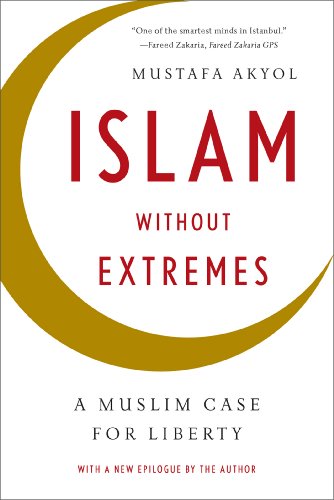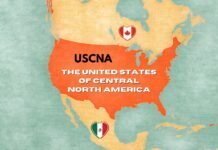“A delightfully original take on…the prospects for liberal democracy in the broader Islamic Middle East.”—Matthew Kaminski, Wall Street Journal
As the Arab Spring threatens to give way to authoritarianism in Egypt and reports from Afghanistan detail widespread violence against U.S. troops and women, news from the Muslim world raises the question: Is Islam incompatible with freedom?
In Islam without Extremes: A Muslim Case for Liberty, Turkish columnist Mustafa Akyol answers this question by revealing the little-understood roots of political Islam, which originally included both rationalist, flexible strains, and more dogmatic, rigid ones.
Though the rigid traditionalists won out, Akyol points to a flourishing of liberalism in the nineteenth-century Ottoman Empire and the unique “Islamo-liberal synthesis” in present-day Turkey. As he powerfully asserts, only by accepting a secular state can Islamic societies thrive? Islam without Extremes offers a desperately needed intellectual basis for the reconcilability of Islam and liberty.
REVIEW
It is challenging to write a book based on religion and history with a convincing case relevant to modern times. I think the Turkish Journalist Mustafa Akyol has successfully met this challenge and presented an exceedingly compelling and convincing case for Liberal Islam.
I loved the way he described Abu Hanifa the pioneer of the juristic side of the rationalist school, the Mutazilite philosophy, and the war of ideas between the Traditionalists and Rationalists throughout the history of Islam.
Akyol highlighted the link between economic prosperity and freedom of religious ideas, illustrating how the School of Tradition cut off the young Islamic community from the economic mainstream.
By isolating Muslims from doing trade with nonbelievers, severely affects every aspect of life from economy to art, language, science, and many resources.
He also addresses a particularly tricky issue; “the rise of hadith” and the theory of abrogation in what is described as the “Post Quar’anic ideology”. In fact, if anyone wants a medical diagnosis of what went wrong in Islam, then look within some aspects of this ideology, for example, the distaste of some toward “innovation”.
Throughout the book, Akyol incorporates lessons from Turkey (Both Ottomans & Kemalists).
Akyol described the Ottoman Empire as a pluralist state (a description
that I struggle to agree with). Yes, the state was tolerant of non-Muslims, but reforms and modernization only took place in the later period of Ottoman rule.
During the early period, the empire was strong and powerful but many of its subjects particularly non-Turks were oppressed and lost their national identity without gaining equal rights. Sadly, the process of modernization came a bit late; the seeds of hatred and separatism were already planted in the heart and minds of many Ottoman subjects.
Akyol rightly rejects authoritarian regimes, even in their mild form. The attempt to push religion out of Muslim minds was proven counterproductive, and it failed drastically both in Turkey and Iran. However, Akyol clearly illustrates how the various rulers throughout Islamic history (as early as the Umayyads & Abbasids) manipulated religion for their political needs. This basic historical fact should justify a degree of secularism provided it “allows freedom of religion not freedom from religion”.
The book also illustrates how Kemalism nationalism has helped to destroy the religious identity in Turkey. However, a complete lack of national identity can also be counter-productive. Arab states lost their national identity under the Ottomans’ rule, and they paid a hefty price following the collapse of the empire.

The Arabs painfully had to watch colonial powers carving their lands to create new nations (even artificial ones), which had an immense knock-on effect that is still valid in modern days. It opened the door for nationalist, socialist dictatorship, and religious extremism to fell the gap. Nationalism, as well as, secularism (in small doses) is not incompatible with Islam and can be accepted in a free liberal Islamic democratic society.
The last two chapters “freedom to sin” and “freedom from Islam” is simply delightful. Akyol clearly highlighted the clear distinction in Sharia between the rights of God and the right of people. Also, how the earthly punishment for apostasy is not Qur’anic but post Qur’anic.
His statement ” Replacing the fear of God with the fear of state or community could only be an obstacle to heart-felt piety” reflect the style and the message of the whole book.
I guess the question is, how to convince the masses to embrace liberal Islam? How to protect the rationalist school of thought from the overzealous of some? How to prevent past mistakes and secure a better future for Muslims?
Muslims need to reflect on their past and present and come up with answers to these questions. The Arab spring provides a golden opportunity for Muslims to move on from the shadow of extremism and embark on the road of rationalism as the way to a better future.
Book Author Biography
Mustafa Akyol, an advocate of “Muslim liberalism,” is a columnist for two Turkish newspapers, Hürriyet Daily News and Star. His articles have also appeared in publications such as Foreign Affairs, Newsweek, Washington Post, Wall Street Journal and International Herald Tribune. He studied political science and history at the Boğaziçi University in Istanbul, where he still lives. You can visit his website at TheWhitePath.com
Buy Islam without Extremes: A Muslim Case for Liberty on Amazon.com >>>











